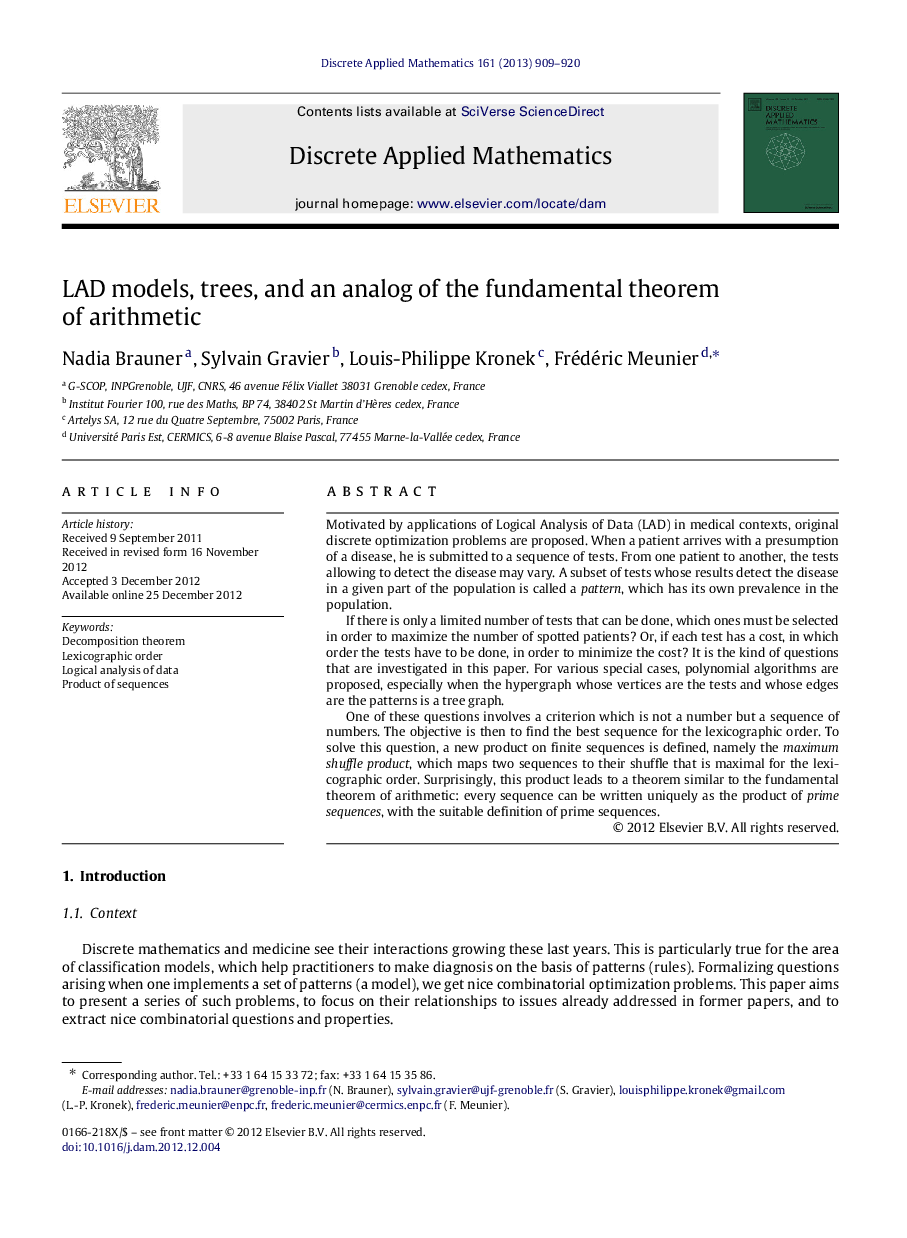| کد مقاله | کد نشریه | سال انتشار | مقاله انگلیسی | نسخه تمام متن |
|---|---|---|---|---|
| 418358 | 681656 | 2013 | 12 صفحه PDF | دانلود رایگان |

Motivated by applications of Logical Analysis of Data (LAD) in medical contexts, original discrete optimization problems are proposed. When a patient arrives with a presumption of a disease, he is submitted to a sequence of tests. From one patient to another, the tests allowing to detect the disease may vary. A subset of tests whose results detect the disease in a given part of the population is called a pattern, which has its own prevalence in the population.If there is only a limited number of tests that can be done, which ones must be selected in order to maximize the number of spotted patients? Or, if each test has a cost, in which order the tests have to be done, in order to minimize the cost? It is the kind of questions that are investigated in this paper. For various special cases, polynomial algorithms are proposed, especially when the hypergraph whose vertices are the tests and whose edges are the patterns is a tree graph.One of these questions involves a criterion which is not a number but a sequence of numbers. The objective is then to find the best sequence for the lexicographic order. To solve this question, a new product on finite sequences is defined, namely the maximum shuffle product, which maps two sequences to their shuffle that is maximal for the lexicographic order. Surprisingly, this product leads to a theorem similar to the fundamental theorem of arithmetic: every sequence can be written uniquely as the product of prime sequences, with the suitable definition of prime sequences.
Journal: Discrete Applied Mathematics - Volume 161, Issues 7–8, May 2013, Pages 909–920